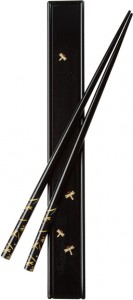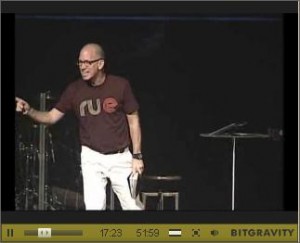
I thought, at first, we were there. He looked directly at me, a steady, relaxed gaze, which in itself would be a remarkable thing for him to be doing, and should have been a clue. Standing in the washed out glow of a streetlight, he leaned back against a yellow VW Beetle with both hands thrust deep in his pockets and regarded me, smiling faintly. As usual, I could only guess at what he found amusing.
Then I understood that it was really I who was looking at him. I pulled my attention away for a moment, not wanting to run the show. It seems I was straddling my old 10-speed, resting sweaty forearms on the handlebars. I looked down and prodded the toe clip, idly spinning the pedal on its axis.
“I never taught you how to ride a bike,” I murmured sorrowfully. I looked up again to see him striding through the garage and into the house.
Now we were in the dining room, still standing, the table between us. It was my own dining room, a place in which we’d both been innumerable times, but not like this. On the other hand, I sensed something archetypal about this encounter, an elemental cross-generational thing, possibly even a scene we’d rehearsed before.
He said, “I think someone is dreaming about this, and maybe planning to tell the world about my inner life.” He winked.
I switched to my earnest voice. “The important thing would not be telling secrets, but rather our simply being able to do this, you know, really.”
He nodded. “We could do this. If the me who’s here met the you who’s there.”
Zany laughter bubbled inside me. “But the you who’s there is the one everybody knows. There’s not much difference between the me who’s here and the me who’s there. Is there? But nobody has seen the you who’s here.”
He opened a varnished wooden box on the table, put his hands inside, and concentrated on doing something behind the raised lid.
“Um, yeah,” he said absent-mindedly. “Maybe people need glasses.”
I said, “I hate to say this, but there’ve been other dreams when you were dead. We were grieving!” My words stumbled out. “I thought those dreams meant, you know, that it was all over, and there was no more hope of reaching you.”
He glanced up from whatever he was doing in the box. “Ever hear anyone say you take yourself too seriously?”
I could feel a line of sweat moving down my forehead. “God, I’m hot,” I muttered to myself. “What is wrong with me?”
“Why don’t you turn the pillow over?” he suggested.
“That does help. Say, I used to do that all the time when I was a little kid. It’s nice and cool. I’d forgotten that trick.”
He smirked. “I’m closer to being a kid than you are.”
“True. OK, you have any other words of wisdom for me?”
“Is there such a thing?”
“Well, look. I know for a fact that people say stupid things all the time. So it kind of stands to reason that there could be the opposite of stupid.”
“You should know that words like stupid rub me the wrong way.”
I mumbled an incoherent apology, something about the excessive latitude we allow some words. He wasn’t listening, so I said, “Son, has anyone ever said you were stupid?”
He looked up from the box and gazed into the distance with a noble, longsuffering expression, immobile as finely polished marble.
“I’m like a statue to you,” he observed finally.
“You’re no statue. You’re my boy.”
“People don’t have expectations of statues.”
“We see something made by man, we look within ourselves. If it resonates, then we admire it.”
He sighed. “What you have in your head, about me, is made by man.”
“But not you yourself.”
“Not me.”
“You’re not made by man.”
He snorted derisively, looking back inside the wooden box. “I’m sure you think man could’ve done a better job of it.”
“I don’t get it. Do you want people to have expectations of you, or not? Have you never had expectations of yourself?”
He rolled his eyes. “We go way back. I remember, same as you, what that was like. Thank you for trying.” He inclined his head formally. “Some of it was good. You should know by now that’s ancient history.”
“Because the you who’s there–“
“The me who’s there doesn’t give a shit any more. I learned you don’t pin everything on–.” He lifted a hand and made vague circular motions above his head.
“Now that you mention it, that’s something I’ve always wanted to ask you. What do you give a shit about? I’d like to know. Because all I ever wanted to do was help you succeed.”
“Boo hoo. There you go again. And shame on me. A boy gets to my age, he’s supposed to start helping the old man, right?”
“I’m not asking for that,” I said, a sob welling up within my throat.
He smiled brightly. “It’s almost breakfast time. Hungry yet?”
“I’d rather talk while we can. We never talk.”
“One of us never talks. The other one talks too damn much.”
“Hey, hey, a little respect wouldn’t be amiss.”
He grinned even more radiantly and leaned across the table to clap a surprisingly large and strong hand on my shoulder. “Come on, I think you can take a joke.”
“You want me to shut up?”
“Know what? I want you to eat. Here.” He stepped away from the box, holding a black tray arranged with crisp Japanese precision–a large brown bowl flanked by a pair of long, lacquered chopsticks. He moved around the table and set it before me.
“Well that’s lovely.” I slipped into a chair and lifted the lid from the bowl, discovering I was suddenly desperate for refreshment. “Is it–is this yogurt?” He wasn’t there. I regarded the chopsticks with concern.
I heard his voice, behind me now. I wanted to see him again but couldn’t muster the energy to turn over. “You don’t have the right tools. That’s been my problem all along. I don’t have a spoon to give you. You don’t have what I need, either. We make do with what we’ve got. Or else let it go. That’s OK too.”
“But people can find tools. Make tools. Invent something new.”
His voice now came from such a distance I scarcely heard. “Good luck with that.”
Morning had arrived. The day was breaking over Mission Trails Summit, where he and I had never once gone biking together. Breaking over the neighborhood streets, where backpack-laden kids would soon be heading for school, and where short school buses would be plucking up those who followed my son’s footsteps. It’s morning there. And there is no here.

